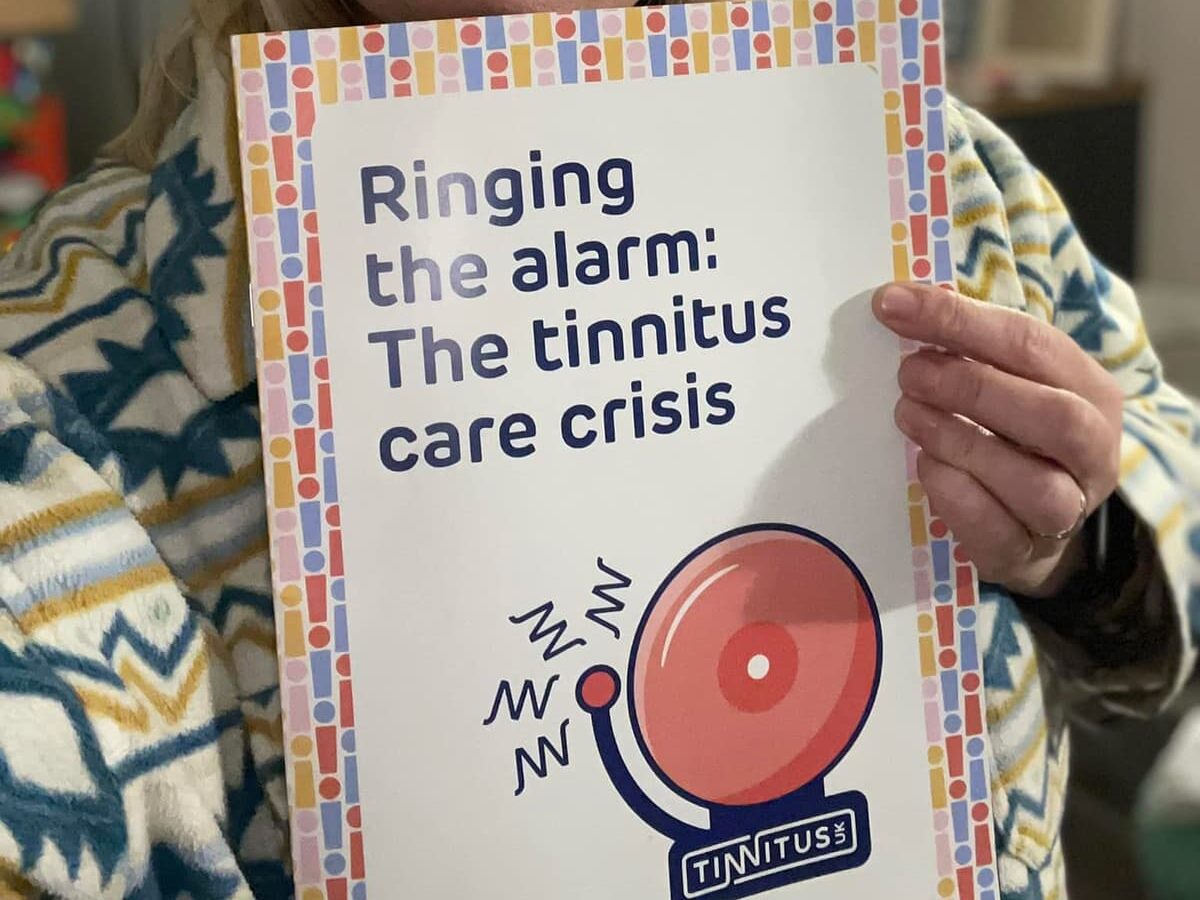Tinnitus care in the UK
The state of tinnitus care in both the private sector & NHS.

The state of tinnitus care
I was delighted to be invited to be lead author and researcher on this year’s Tinnitus Week report for the charity Tinnitus UK. The report aims to mobilise the whole hearing health industry into collective action, to improve (in real terms) tinnitus care in both the NHS and private sector.
In this article, I’ll outline the research and current thinking on tinnitus, as well as some of the reports main findings and recommendations.
To download the report in full, please visit Tinnitus UK, or get in touch to find out how I can support you with your tinnitus.
Ringing the alarm: The tinnitus care crisis
The current state of tinnitus care in the UK - main findings & recommendations
What is tinnitus and how many people does it affect in the UK?
Tinnitus is the perception of sound, such as ringing, buzzing, or hissing in the ears or head, without an external sound source. Tinnitus affects approximately one in seven adults in the UK and, whilst every person’s experience of tinnitus is different, for many people it becomes a persistent, life-altering condition, impacting on their health, education, and quality of life.
Why this research and report?
Tinnitus is an urgent and escalating public health challenge, with healthcare costs in the UK currently exceeding £750 million annually, and projected to rise further this year. This research and report, by the charity Tinnitus UK, aims to explore the current state of tinnitus care provided within the UK’s private sector and NHS, and provide a call to action to the hearing health industry to address the issues raised.
How long is the wait for tinnitus care in the UK?
Waiting times of up to 12 months for tinnitus care such as psychology, talking therapies, CBT referrals, or hearing aid assistance have been reported by NHS clinicians, with waiting times of up to three years for ENT appointments. This leaves many without timely intervention for their tinnitus, with consequential impacts on mental health and quality of life for those affected.
Is tinnitus care prioritised by clinicians?
Within the private sector 36% of audiologists consider tinnitus care a low priority, with many clinics prioritising hearing aid sales over more holistic patient support.
What do tinnitus care guidelines say and are they followed?
National Institute for Health and Care Excellence (NICE) guidelines emphasise timely assessment and evidence-based interventions, and advocate for multidisciplinary collaboration, regular monitoring, and patient centred care.
While skilled NHS and private clinicians are making significant contributions to tinnitus care, our findings suggest inconsistencies in adhering to these guidelines.
For example, NICE guidelines specify that CBT should only be administered by qualified psychologists. However, our findings reveal a lack of appropriate CBT referrals, and a notable trend for hearing healthcare practitioner led CBT within private and NHS sectors.
Whilst some practitioners argue that providing CBT within audiology settings has advantages related to continuity and timely care, lack of adherence to agreed guidelines raises concerns about disparities in training, practice quality, and outcomes for patients.
What training do audiology students receive in tinnitus care?
Our research found that UK audiology graduates lack clinical experience in tinnitus care, leaving them ill-equipped to address patients’ needs effectively. None of the UK university audiology departments surveyed offered tinnitus-specific clinical mentoring, competency logbooks, or work placements.
What’s next for tinnitus care in the UK?
To address the issues highlighted in this report, Tinnitus UK is calling for the hearing health sector to:
- Fully implement NICE Guidelines, to ensure optimal care for tinnitus patients.
- Tinnitus-focused continuing professional development (CPD) for all qualified hearing healthcare practitioners.
- Expanded and standardised tinnitus university education to help prepare future hearing care professionals in supporting patients who experience tinnitus.
- Access to Tinnitus UK resources and specialised support for both patients and healthcare professionals.
To read the full report, please visit Tinnitus UK to download your copy. You can also make a donation to Tinnitus UK to help them to continue providing the very best support to those suffering from tinnitus.
If you would like to listen to a podcast where I join Signia’s Julia van Huyssteen and Alex Brooks-Johnson, CEO of Tinnitus UK, to discuss research and current thinking on tinnitus, you can download it at Apple Podcasts.
By Sonja Jones
Senior Clinical Audiologist & Hearing Aid Dispenser
Sonja is a highly accomplished clinical audiologist with a wealth of experience in tinnitus care, as well as in other sectors within the hearing healthcare industry.
If you would like to discuss your tinnitus treatment options with Sonja, please get in touch, or book a tinnitus consultation online. Please note that tinnitus consultations are only available at our Taff’s Well clinic.